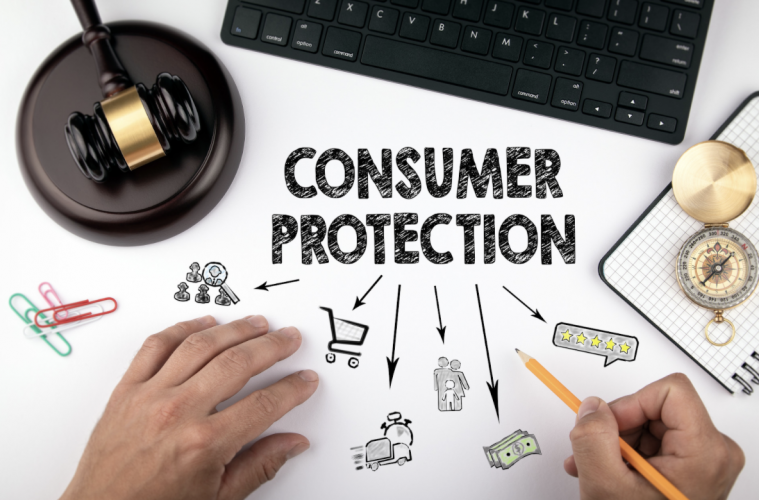Nearly 2 billion dollars get lost by Americans to fraud annually. What’s worst is that fraud losses tend to see an uptick during times of financial unrest since scammers are more desperate and victims are more scared.
Seeing those high fraud losses can feel disheartening. It’s important to note that losses could be a lot more extreme if it wasn’t for consumer protection laws and services that are extended by private and government agencies.
Consumer protections aim to give people that buy things recourse when purchases don’t net them the results they’re expecting. If you’re not sure where to start when it comes to learning about consumer protection, keep reading!
Below, we walk you through key facts that’ll shape your education.
1. You Are Protected Against Deceptive Ads
Have you ever purchased a product that didn’t do what it claimed? What about a product that looked significantly different from what was advertised?
Those are both examples of deceptive advertising which is among the most common consumer protection complaints that get filed in the United States.
Know that when you’re the victim of deceptive advertising that you have recourse. Ads that intentionally misrepresent a product’s presentation or capabilities are subject to recall and manufacturers/companies are liable for consumer’s expenses that resulted from buying those products.
2. Children’s Data Cannot Be Mined
There’s an old saying that if a service you’re using isn’t selling you a product then you are the product. That adage is apparent in popular applications like YouTube or Instagram.
For free services to use you as a product, they need to mine your data, usually to furnish information to advertisers. If you’re under 13 years old, COPPA prohibits your information from getting mined/sold.
That consumer protection safeguard is one of the primary reasons why several social media platforms don’t allow people under the age of 13 to create accounts.
3. False Origin Claims Are Illegal
Whenever you buy a product, you’re able to find on its packaging the country it was made in. That place of origin announcement is a necessity to give consumers insight into the kinds of businesses they’re supporting and the quality of their products.
If ever a company decided to misrepresent where it manufactures products, explicitly or implicitly, they could incur steep fines and could be subjected to consumer lawsuits.
4. TCPA Saves Your Phone From Marketing
In 1991, landmark consumer protections got passed via the TCPA. TCPA (Telephone Consumer Protection Act) was an amendment to similar legislation that restricts marketing via phone calls, texts, and fax machines.
This legislation also established the “do not call” list which marketers need to check their leads against to make sure they’re not pushing products to unperceptive individuals.
As you may have noticed, marketers sometimes ignore do not call lists. If they’re caught doing this, they face fines worth thousands of dollars, per violation.
5. You’re Hardly Liable for Card Fraud
As the world transitions from cash payments to plastic, more conversations are swirling around the safety of credit card purchases. Credit card fraud has been a long-standing problem that has led to billions of dollars in false charges.
Fortunately, as a consumer, you’re liable for nearly none of it.
Consumer protection laws dictate that you’re only liable for $50 worth of credit card fraud that’s committed at your expense. If you report your card lost or stolen before false transactions take place, you’re liable for none of it.
What’s better is that most credit card issuers take that protection a step further by making you 0% liable for fraudulent charges in all cases. They do this as a means of attracting customers.
6. Credit Reports Are an Entitlement
A big part of being a consumer in the United States revolves around having good credit. For the uninitiated, your credit is a signal to merchants that tells them how likely you are to pay for products and services over an extended period.
Your credit will likely get run before executing a service agreement, leasing you an apartment, or selling you a car.
To manage your credit, you need to have an awareness of how your credit looks. That can be done on at least an annual basis, for free, by making a formal request for your credit report.
Credit reports need to be issued to consumers on at least an annual basis. Most credit companies will take this further by giving you access to your credit score year round, for free.
7. Private Companies Offer Above and Beyond Protections
While foundational consumer protection is offered through the government, additional protection benefits get furnished by private businesses.
For example, a credit card company might offer you price protection that enables you to get a refund for the price difference of an item if it drops in price shortly after purchase. Businesses might also give you extended warranties, return windows, and more.
Pay attention to what businesses you work with are offering you in the way of consumer protection services. Prioritize working with the companies that seem most adamant about your care.
Also, make it a point to browse the FTC site to gain more context on refund rights, these lemon laws, how to file complaints, and more.
Knowing Your Consumer Protection Rights Makes Shopping Less Stressful
There are a lot of products and services out there. Understanding that if you choose to buy something you’ll be covered in the event your experience goes south can take a lot of pressure off of needing to filter through your choices.
We hope you feel more confident consuming as a result of reading this post and welcome you to explore more helpful consumer protection information on our blog!

